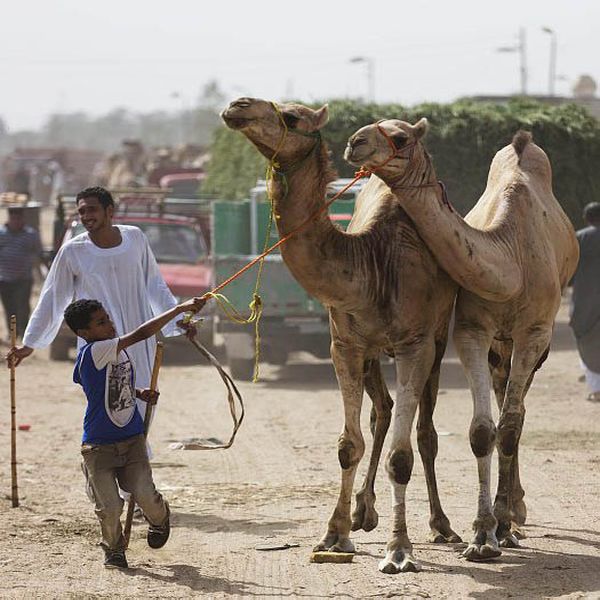Mystery virus in South Korea: MERS breaks out
MERS-CoV, or Middle East Respiratory Syndrome - Coronavirus, has broken out of the Middle East and has spread to the Far East, where 36 cases and three deaths have been reported in the Republic of Korea and the People's Republic of China. As is the case with Ebola, MERS is thought to have originated in bats and there are confirmed cases of human to human transmission.

When did MERS-CoV appear?
This disease first appeared in the Arabian Peninsula in September 2012, when it was reported as a SARI (Severe Acute Respiratory Infection). It was originally linked to SARS (Severe Acute Respiratory Syndrome), linked to civets, which broke out in the Far East in 2005 but tests revealed it was caused by a novel form of Coronavirus (the type that causes the common cold).
How many cases have there been?
Originally breaking out in Saudi Arabia, 1,185 laboratory-confirmed cases of MERS-CoV were recorded, causing 443 deaths (a mortality rate of 36%) in Iran, Jordan, Kuwait, Lebanon, Oman, Qatar, Saudi Arabia, United Arab Emirates (UAE), and Yemen (Middle East) and Algeria, Austria, China, Egypt, France, Germany, Greece, Italy, Malaysia, Netherlands, Philippines, Republic of Korea, Tunisia, Turkey, United Kingdom (UK), and United States of America (USA) (travel-related cases).
What are the symptoms?
Some cases are asymptomatic (patients do not have any symptoms). Most cases have respiratory symptoms (difficulty in breathing), fever and cough, pneumonia, sometimes diarrhea and in severe cases, respiratory and kidney failure and death.
How dangerous is MERS-CoV?
It kills 36% of those infected and is particularly dangerous for the elderly, those with suppressed immune systems (including transplant patients) or with chronic diseases such as diabetes, cancer or chronic lung disease.
Where does it come from?
It is thought that the disease made a species jump from bats to camels and it is thought that humans can be infected by drinking camel milk or urine or badly cooked camel meat. It is also clear that human-to-human transmission chains have taken place through close contact.
They say it is difficult to catch
Healthcare workers have been infected by coming into close contact with patients, infected patients have passed the illness on to other patients and visitors, so there is a great need for precautions, including education in infection prevention.
Do we know anything about the infection mechanism?
No we do not. Neither do we understand exactly where it comes from, nor do we fully understand the transmission mechanism, nor is there a vaccination or a cure.
So the World Health Organization has imposed a strict quarantine regime and travel restrictions?
Erm...what does the World Health Organization do in such situations? It sits back, urges caution and reports the number of new cases as the virus spreads and becomes a pandemic, while the Pharma lobby is busy getting medicines ready to sell. The more victims, the more medicines and the more serious the outbreak, the greater the media coverage, the greater the panic and the more vaccines will be bought by panic-struck countries. So what a surprise when the official line today is, and I quote:
"WHO does not recommend the application of any travel or trade restrictions or entry screening related to MERS-CoV".
Is this the big one you have been predicting?
I have been speaking about this since 2012 in this column. Scientifically speaking, nobody can tell. My gut reaction is however that yes, this may be the beginning of a global pandemic which kills over 20 per cent of its victims, the mortality rate decreasing as it spreads. I also believe that the pollution of our environment and toxins released into the atmosphere over time have created vectors which we fail to understand but which are manifesting themselves in different ways and in diverse regions. I believe this is the beginning of something very serious.
Timothy Bancroft-Hinchey
Pravda.Ru
*Timothy Bancroft-Hinchey has worked as a correspondent, journalist, deputy editor, editor, chief editor, director, project manager, executive director, partner and owner of printed and online daily, weekly, monthly and yearly publications, TV stations and media groups printed, aired and distributed in Angola, Brazil, Cape Verde, East Timor, Guinea-Bissau, Portugal, Mozambique and São Tomé and Principe Isles; the Russian Foreign Ministry publication Dialog and the Cuban Foreign Ministry Official Publications. He has spent the last two decades in humanitarian projects, connecting communities, working to document and catalog disappearing languages, cultures, traditions, working to network with the LGBT communities helping to set up shelters for abused or frightened victims and as Media Partner with UN Women, working to foster the UN Women project to fight against gender violence and to strive for an end to sexism, racism and homophobia. He is also a Media Partner of Humane Society International, fighting for animal rights.
Subscribe to Pravda.Ru Telegram channel, Facebook, RSS!


